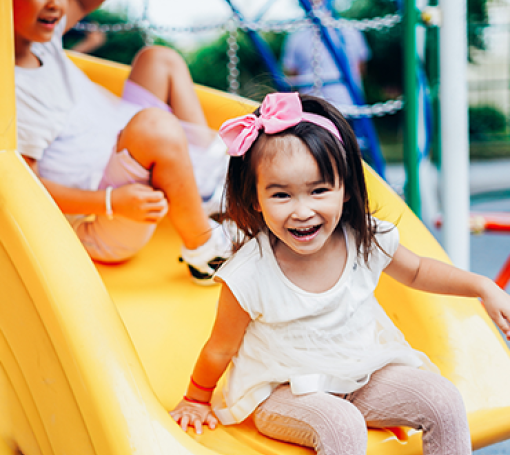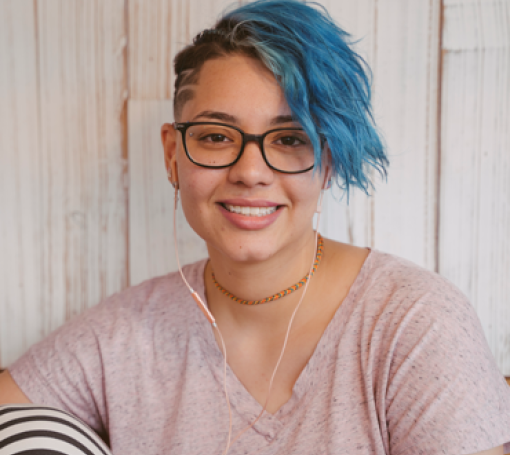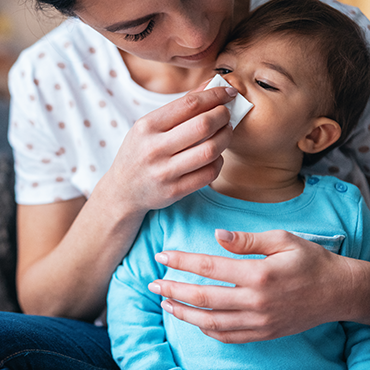What is RSV?
RSV, or respiratory syncytial virus, is a common childhood illness that affects the nose, throat, and lungs. It typically circulates from late fall to early spring. Historically, most children were exposed to the virus by the time they were 2 years old. While you can get RSV more than once, most subsequent infections are milder than the first due to some level of natural immunity. The COVID pandemic impacted the typical spread of RSV because many children were kept at home during the years that they would normally be exposed to the virus, so most children under 4 years are susceptible. This year, RSV began circulating during the summer months and is now increasing as we head into the winter months.
What are the symptoms of RSV?
For most healthy children, the symptoms of RSV are similar to a cold and may include fever, cough, congestion, runny nose, sneezing, tiredness, fussiness, and/or poor feeding. Symptoms generally last one week but can linger for up to three weeks. RSV symptoms typically peak on days 3-5 of illness.
Because RSV creates thick mucus in the nose and infects the lungs, some babies will develop more severe illness. Your child should be evaluated by a provider if they cannot hydrate, their fever is severe or prolonged, or they have trouble breathing. Warning signs that your baby is working harder than normal to breathe include:
- Fast breathing
- Visible retractions (pulling in of muscles) to help breathing, such as between the ribs or in the lower neck
- Belly muscles pushing and/or grunting with each breath out
- Wheezing (or whistling noise when breathing out)
- Nostrils flaring (opening wide to get more oxygen)
- Head bobbing with breathing
- Taking breaks from feeding to breathe
How can I protect my child from getting RSV?
RSV is a contagious illness that can spread from person to person through saliva or mucus on unclean hands, objects, or surfaces. Symptoms can appear 2-8 days after contact with RSV. It is important to:
- Wash your hands: Wash frequently using soap and water and scrubbing for at least 20 seconds
- Disinfect surfaces: Regularly disinfect toys and surfaces in your home
- No smoking: Avoid exposing your child to secondhand smoke
- Offer breastmilk: Breastmilk has unique antibodies that help babies fight infections
- Vaccinate: Keep your child up to date on routine immunizations, including PCV and HIB, to reduce the risk of an ear infection or pneumonia that can be caused when the mucus RSV produces gets trapped in your child’s ear tubes or lungs.
Is there an RSV vaccine?
The FDA has approved an RSV vaccine, however it is only authorized for use in individuals 60 years of age and older and pregnant moms between 32-36 weeks gestation. The vaccine for pregnant moms protects baby from RSV if the vaccine is received within 2+ weeks of delivery.
Prevention of RSV for babies is also available through a passive immunization called nirsevimab (Beyfortus), which has been approved by the FDA for babies 7 months and younger. Nirsevimab is a long-acting monoclonal antibody that helps prevent RSV. It works by helping your child’s immune system attack the virus if they become exposed to it. Nirsevimab is not needed if a baby’s mother received the RSV vaccine 2 or more weeks prior to delivery. Some babies 19 months and younger with high-risk medical conditions will also be eligible to receive nirsevimab during their second RSV season.
Are some children at a greater risk of developing severe symptoms?
Yes. Factors that may increase this risk of complications with RSV infection include:
- Newborns in the first 3 months of life
- *Chronic Lung Disease of prematurity
- *Severe immune compromise
- *Severe Cystic Fibrosis
- *American Indian or Alaskan Natives
*Some of these risk factors allow babies to qualify for an additional dose of the passive immunization called nirsevimab (Beyfortus) during their second RSV season. If you are concerned about your child’s risk for severe infection, schedule an appointment with your primary care provider.
How is RSV diagnosed?
Providers diagnose respiratory viruses by taking a medical history and performing a physical exam. In most cases, RSV is mild and does not need to be distinguished from the common cold. Some healthcare centers, such as emergency rooms, may test your child’s nasal mucus to tell you if they have RSV specifically. Allegro does not offer this test because the result will not change the treatment plan, your child won’t like being swabbed, and it is expensive.
How is RSV treated?
There is no specific treatment for RSV. Children benefit most from care that supports their breathing, eating, and sleep while their immune system fights off the virus. These supports include:
- Nasal saline with suctioning or nasal irrigation: If your child is under the age of 3, use a saline solution to loosen mucus and then suck it out using a nasal aspirator. If your child is 3 years and older, use nasal irrigation to help clear out thick mucus. More information can be found on our Nasal Suctioning and Nasal Irrigation guide
- Cool-mist humidifier: Allows for easier breathing
- Fluids and frequent feedings: Make sure your child is staying hydrated
- Acetaminophen or ibuprofen (if older than 6 months): Can help reduce fever. Your child’s immune system uses fever to kill the virus, so we encourage you to treat only if fever makes your child uncomfortable.
- Cough and cold medications are not safe or effective in children under 6 years of age.
Antibiotics do not work to treat RSV because it is a virus, and antibiotics only work against bacteria. Vaccines and antiviral medicines are being studied but are not yet available. Most cases are treated at home. Severe cases can require hospitalization if your child’s oxygen is too low or they cannot stay hydrated without IV fluids.
Helpful Resources
Here is a video to with additional information on the causes and diagnosis of RSV.
Keep Reading
View All Posts
Summer Safety Tips
Summer is a season of fun and adventure, but it also brings unique safety challenges for kids. Dr. Brianna Label offers practical tips to help families stay safe all season long.

Nexplanon: A Guide for Teens and Parents
Nexplanon is a form of Long-Acting Reversible Contraception (LARC) offered at Allegro for birth control or to help manage painful periods. Learn how it works, its benefits, and potential side effects to help you and your teen make informed decisions together.


